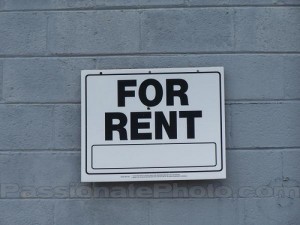Becoming a Landlord
The economy is making landlords out of homeowners in ever-increasing numbers. For some, their home’s value has plummeted, and they are reluctant to sell at current prices, believing their home is worth more. Sellers are riding out the market, renting their homes until values increase again.
Others turn to renting because they cannot keep a house on the market indefinitely, while paying mortgage, taxes, and insurance. Renting becomes a way to cover out-of-pocket expenses.
Still others become landlords as a way to supplement income in retirement or while still employed. As times get tougher, investments trickier, and jobs uncertain, owning income-producing real estate makes sense to more and more people.
If you have decided to rent your home or invest in rental property, you now face another decision: to manage your property yourself, or hire a property management company. Ask yourself these questions to help you decide:
Are you a people person? Do you enjoy helping people solve problems—without much appreciation? Landlords cannot be shy or guarded—they should enjoy working with people from all backgrounds and personality types.
Are you patient? Do you convey a professional demeanor? Landlords must be tough, fair, and not easily ruffled. Some tenants will try to manipulate you; others will need more attention; still other tenants will require a firm hand. Landlords must be consistent with the rules, applying them equally to all tenants. Are you ready for this challenge?
Can you easily separate personal emotions from business decisions? If you rent your home, it becomes a business venture—some people cannot see it that way. If you manage tenants, their personal problems cannot become yours.
Are you well organized? Property management requires excellent record keeping skills, bookkeeping, and time-management. You must become familiar with housing laws and contracts, too.
Do you have maintenance and repair skills? Or can you manage someone who does?
Finally, are you willing to commit the time, effort, and stress involved in becoming your own property manager?
If you answered “yes” to all of these questions, then rental property management could be a good fit for your skills. If not, you might still consider it, knowing which areas need work, and where you need to be more flexible.
If your answers are all “no”s, then you might turn your attention to ventures other than managing property. Still, owning income property is not out of the question, because you don’t have to manage it yourself.
Start the decision-making process by being honest with yourself. Know your strengths and weaknesses. If you are truly up for the challenge, educate yourself to ensure you are not stepping over legal boundaries or into unfamiliar territory. The better prepared you are, the more successful you will be.
Managing rental property on your own does not have to be a completely solo venture. Seek out the resources that will help you do a better job, such as educational opportunities, maintenance service providers, and tenant screening services.

